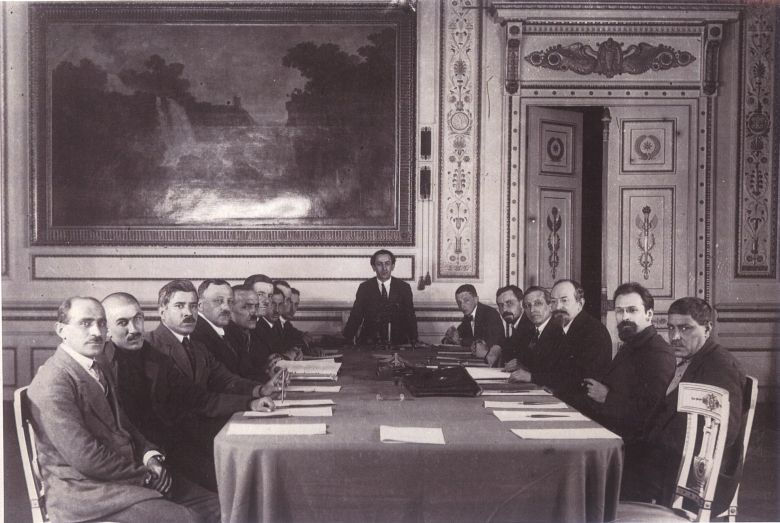Armenia's Deputy FM Raises Concerns Over Possible Azerbaijani Military Actions at OSCE Meeting
- The Armenian Report Team

- Sep 11, 2023
- 2 min read

In a recent session of the OSCE Special Permanent Council convened at the initiative of Armenia, Vahe Gevorgyan, the Deputy Minister of Foreign Affairs of Armenia, voiced serious apprehensions regarding the escalating tensions and deteriorating humanitarian conditions in Artsakh (Nagorno-Karabakh). Gevorgyan's remarks, delivered on September 12, highlighted concerns about Azerbaijan's actions along the Armenia-Azerbaijan border and the contact line with Nagorno-Karabakh.
At the OSCE meeting in Vienna, Gevorgyan drew the attention of representatives from OSCE participating states to the protracted humanitarian crisis in Artsakh. He attributed this crisis to Azerbaijan's nine-month-long illegal blockade of the Lachin Corridor and actions aimed at escalating the security situation by the Azerbaijani armed forces.
Gevorgyan emphasized that the blockade of Nagorno-Karabakh had severe consequences, leading to extreme humanitarian hardships for the region's 120,000 Armenian population. He pointed out that the blockade, which involved the disruption of key infrastructures such as electricity and gas supplies, appeared to be part of a broader pattern of decades-long incitement of hatred against Armenians, a policy of using force and the threat of force, and grave violations of international humanitarian and human rights law. Gevorgyan warned that these actions constituted alarming signs of genocidal intent.
The Deputy Foreign Minister urged Azerbaijan to adhere to the international community's calls and unconditionally implement the Order of the International Court of Justice issued in 2023, which called for an end to the illegal blockade of the Lachin Corridor and the uninterrupted movement of people, vehicles, and cargo between Armenia and Artsakh in both directions.
Gevorgyan also stressed the immediate need for unimpeded delivery of humanitarian aid to Nagorno-Karabakh and encouraged engagement with relevant international organizations on the ground.
Regarding the security situation in the region, Gevorgyan criticized Azerbaijan's movements and build-up of personnel, offensive hardware, and military equipment along the border with Armenia and the line of contact with Nagorno-Karabakh. He characterized these actions as a threat to use force, raising concerns that Azerbaijan might be preparing for a new military attack on Armenia and Nagorno-Karabakh.
While reaffirming Armenia's commitment to resolving outstanding issues with Azerbaijan through peaceful and diplomatic means, Gevorgyan called upon the international community and Armenia's partners to take all necessary steps to prevent further aggression in the region.
The Deputy Foreign Minister underscored Armenia's unwavering commitment to achieving stability and lasting peace in the region, emphasizing that such goals could only be realized under conditions that excluded the use or threat of force and respected fundamental human rights.
Gevorgyan also emphasized the crucial role of international efforts in safeguarding the rights and security of the people of Nagorno-Karabakh and highlighted the need for a strong international mechanism to facilitate dialogue between Stepanakert and Baku, ensuring tangible outcomes during the process.






Comments